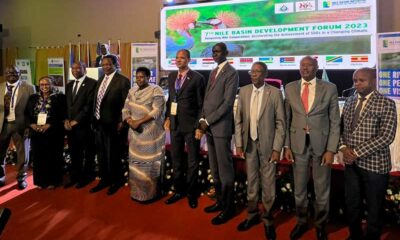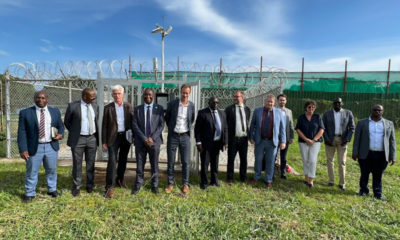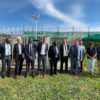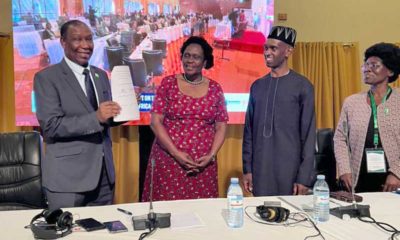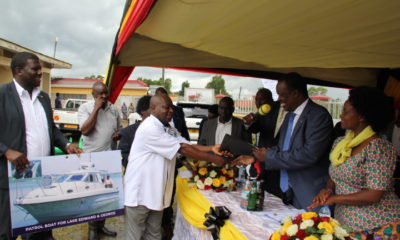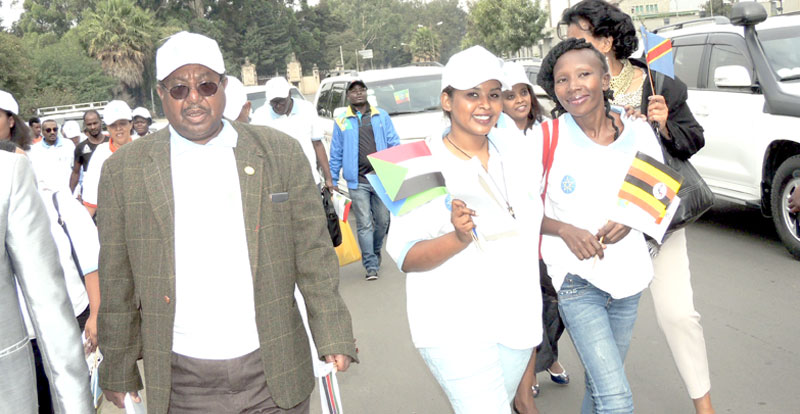Analysis
20 years of Nile Basin Initiative;
A legacy of building trust and sharing benefits of the Nile
Twenty years ago this week, history was made in the arena of international peace and human civilisation.
All the ten countries in which the River Nile flows or originates; I.e Uganda, Kenya, Tanzania, Rwanda, Burundi, Ethiopia, Sudan, D.R Congo, Eritrea and Egypt, met in Dar-es-Salaam, Tanzania, and agreed to step up their cooperation by forming the Nile Basin Initiative.
The NBI was established as a transitional organisation that would help to prepare the ground for the establishment of a permanent body.
Besides, at its founding, NBI also had the task of initiating and implementing development projects as one of the ways to attract and maintain the interest of member countries.
The signing of minutes of the Nile Council of Ministers which sat on February 22, 1999 in Dar-es-Salaam, constituted the agreement that led to the establishment of the NBI. It was a milestone achievement for the member countries, according to people conversant with the history of the organisation.
For Uganda, the agreement was a significant step in more ways than one. First, it constituted a major step forward in Uganda’s ambition of mobilising concerned countries to face up to the pressure and apparent arrogance of Egypt over the use of the Nile waters.
As you may perhaps recall, Egypt had and still claims to have veto power over the use of the waters of the Nile, arising from the 1929 colonial era agreement they signed with the British government. The fake agreement gave Egypt the full rights to deny all other countries in which the Nile flows, the right to use water, without Egypt’s prior approval.
Patrick Kahangire, a former Executive Director of the NBI and also former Director of Water Resources in Uganda’s Ministry of Water, argues that the establishment of the NBI was a vital step in putting things straight.
“For a long time, we had been getting a lot of cooperation pressure from Egypt and Sudan over the use of the waters of the Nile, and yet we knew that as development and population increased, we would get even more pressure from other source countries such as Rwanda, Tanzania and Kenya, because they also want to use the waters of the Nile for development,” recalls Kahangire.
So the founding of NBI, as Eng. Gerson Lwenge, the former Minister of water and irrigation in Tanzania remarked, the establishment of NBI was a major achievement in resolving present and potential future problems through multilateral cooperation.
“It was the first time in the Basin’s history that all countries opted for multilateral cooperation and since that time it has continued to demonstrate tangible benefits from and future potential for Nile cooperation,” said Eng. Lwenge.
The Nile Basin Initiative (NBI) with its headquarters located in Entebbe, was established as an important transitional institution that would help to push for the realisation of a long-held dream of establishing a legal and permanent River Based Organisation. The permanent entity, it is presumed will guild countries in their competitive use of the water resources of River Nile.
The idea of establishing greater authority had been conceived earlier on in what was dubbed as the Cooperative Framework Agreement (CFA). And the NBI’s existence helped to realise its signing 11 years later in May 2010 in Entebbe by at least six countries.
For Uganda as well, hosting the NBI offered the opportunities that come with hosting an international organisation such as employment opportunities for locals, offering accommodation, among others.
Benefits
Besides helping to find a common voice over an issue that is as complicated as water, NBI has breathed life into several new projects by mobilising investment and providing expertise. A number of them are visible such as power inter-connection projects, irrigation schemes and hydro-power dams, but many experts acknowledge that most of the benefits of Nile Cooperation are invisible such as confidence building which has contributed to knowledge sharing among member countries.
As NBI in its 2016 landmark report: Building On Shared Benefits; “Since 1999, Nile Basin countries have overcome centuries of mistrust, a difficult colonial legacy and challenges of access to and use of the shared waters of the Nile to build a unique trans-boundary institution.”
It’s upon those invaluable efforts of trust building that many other physical benefits have been realised.
According to Eng. Sowedi Sewagudde, a principle water officer in Charge of Trans-boundary Water Affairs in the Ministry of Water and Environment, an estimated 300 Ugandans have been trained in different fields and at different levels ranging from Masters to Doctorate degree level.
NBI has also played key roles in facilitating access to power among member countries, by promoting a number of investment investment projects for the construction of hydro-power projects and development of inter-connection lines that connect the grids of different countries.
As the host of NBI secretariat, Uganda has benefited considerably from its the benefits that come with hosting an international organisation.
Besides, Uganda continues to benefit from a number of projects. The country is one of the five Nile Equatorial Lakes countries whose power grids were connected allowing the transfer of about 150 -300MW of electric power along the 255 km Uganda-Kenya power line.
The power inter-connection projects have the potential to increase supply but also reliability in case one energy source experiences disruptions.
The inter-connections also have the advantage of expanding the market for power. For example, the likelihood of Uganda producing excess electricity when its two dams Karuma and Isimba are completed, will likely lead to lower cost of power by ensuring that the generated power finds ready consumers beyond our borders.
Food Security
The Nile Basin system is supporting the development of a number of trans-boundary irrigation projects as well as watershed management projects. These include the development of the Kabuyanda multi-purpose irrigation project in the Kagera river basin, whose benefits will be shared by the border populations of Uganda and Tanzania.
The multi-purpose scheme will also generate 100KV of electricity when it is completed.
The Sio-Malaba-Malakisi irrigation project on the border between Uganda and Kenya will benefit farmers through income generation, increased agricultural production and higher value products.
In total, over 30 projects worth more than US$6 billion (Approx. UGX21 trillion) have been planned over the next ten years.
The future of Nile cooperation
Over the 20 year journey of NBI’s existence, Nile cooperation has suffered from several threats arising mostly from the sense of fatigue among some member countries especially following the lack of consensus over the signing of the Cooperative Framework Agreement (CFA) that would establish a permanent organisation.
This sense of stagnation largely arose from Egypt’s insistence over its colonial era veto rights over the use of the Nile waters, which contradicts the reality and spirit of cooperation.
But as pointed out by former Mr. Gerson Lwenge, the former Minister of Water in Tanzania and former chairman of the Nile Council of Ministers, there is optimism that greater cooperation will be achieved.
Lwenge pointed out in the landmark 2016 NBI report on Benefits of Nile Cooperation that: “Fortunately, all NBI Member States recognize that non-cooperation is undesirable and unlikely and have reiterated their commitment to Nile Cooperation as the only way to achieve effective management and development of the basin’s resources.”
In fact, despite Egypt’s non-signing of the CFA, it’s continued participation in NBI activities, as well as its willingness to allow several development projects to be implemented on the Nile such as the 6000 MegaWatt Grand Renaissance Dam in Ethiopia, is a sign that it is willing to abandon the colonial era attitude in favour of a negotiated arrangement made possible under the Nile Basin framework.
Comments



